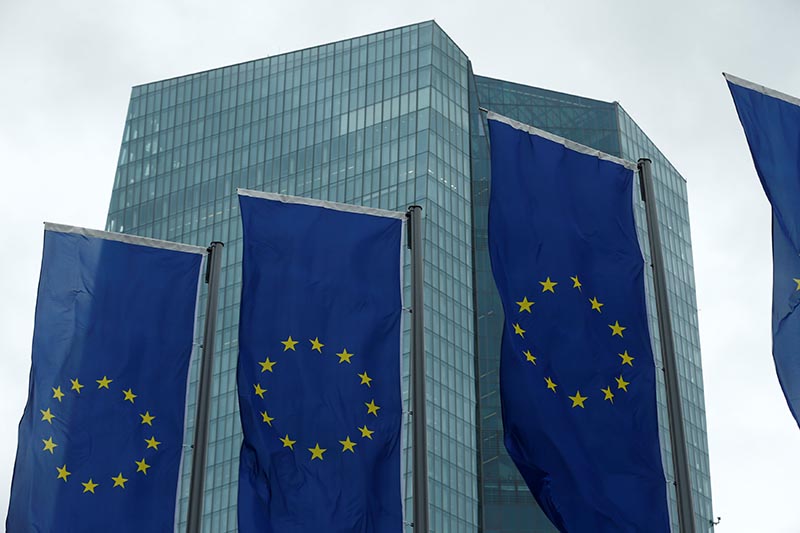EU response to COVID-19
KATHMANDU: The WHO has declared the outbreak of COVID-19, the coronavirus, a pandemic. The problàem is now worldwide, and we all need to work together at a global level. We need to act with determination to protect public health and avoid further spread.
The pandemic is hitting Europe very hard now, and the European Unions institutions and its Member States are taking clear, tough, measures, based on the best available scientific expertise. European citizens are doing their best to help contain the virus by staying indoors, and showing their solidarity with their elders and each other. We are very grateful to the incredibly hard working people in the frontlines of the epidemic, working tirelessly in hospitals and health centres to respond to this unprecedented crisis.
The European Union has also stepped up coordination efforts with Member States, to deal with the health aspect of the crisis, which is the most urgent, but also to counter the unparalleled economic fallout that is coming. The European Union is playing its role and doing everything possible to tackle the crisis and its consequences.
The European Union has moved rapidly and assertively to take responsibility to protect citizens in Europe and around the world to prevent further spread of the virus, and support those in need. It has also taken measures to protect our economies and support workers, families and enterprises. We are acting in full transparency and respect for individual rights and coordinating closely with our partners and the WHO. Cooperation and solidarity are critical to overcome this pandemic.
In an attempt to slow the transmission of the coronavirus through international travel, the European Union has decided to apply a temporary restriction on non-essential travel from third countries to the European Union. These restrictions aim at reducing incoming flows in order to slow transmission to third countries upon travellers return. EU citizens travel outside the EU is also discouraged, in order to prevent further spread of the virus to other countries.
These measures are for the protection of all as we need to tackle this pandemic globally. They are not directed at any specific country or group of countries, but apply universally, with duly justified exemptions, that cover third country nationals as well.
The European Union is supporting global efforts and those in need. At the onset of the outbreak, the EU sent more than 56 tonnes of personal protective equipment to China. Since then, the European Commission has mobilised more than 400 million euros to boost global preparedness, prevention and containment of the virus. 113.5 million euros will support countries under particular strain and weaker health systems, including Nepal, through the WHO.
EU is also looking at ways to ensure that its development assistance can be effectively mobilised or otherwise refocused, when possible, to support the immediate health response of its partners in the world whenever needed as well as measures to support economic recovery.
Then there is also the mobilisation of 140 million euros of public and private funding for research on vaccines, diagnosis and treatment. It is crucial to find a vaccine as quickly as possible, which will be beneficial for the entire world.
Worldwide, our cooperation and solidarity is being tested. There is no time for "chacun pour soi" or unilateral action. Beyond national measures, we must also act collectively at the global level. The virus disregards national borders. On the economic front, international cooperation must also be fostered and will bring better results than international competition.
Full use should be made of the available multilateral mechanisms notably the WHO to share scientific evidence, data, promote best practices, and co-ordinate the global response.
Open and accurate information is key at this moment of crisis.
Indeed, this crisis has highlighted the importance of multilateral institutions and the need for strengthened international cooperation and solidarity. The European Union will draw the relevant lessons from this crisis, in order to increase global resilience and reinforce multilateral mechanisms for cooperation in difficult circumstances.
Here in Nepal, as is the case around the world, the situation is changing rapidly, and the Government of Nepal is responding with strong measures to contain the virus and protect the people.
Since 2011, the European Union has been providing continuous support to the national health emergency preparedness in Nepal to strengthen its readiness to respond to health crisis such as that which we are now facing. The total EU funding to WHO in Nepal for emergency health preparedness has been 3,680,000 euros, including support to establishing hub and satellite hospital networks in the mid and far western regions that would be prepared and ready to respond in case of major disease outbreaks.
The EU is hard at work in Nepal with the Government and international partners to respond to this crisis. Currently, the EU is co-financing UNDP, UNICEF, Civil Society Organizations and the Government of Nepals public information campaign on COVID_19 and dissemination of materials.
We are also working closely with the Ministry of Health and Population to support essential nutrition services such as treatment of children with severe acute malnutrition, with the aim to minimize the disruption of these services and to modify the existing treatment protocols. In addition, the Red Cross project with EU funding is supporting information collection for COVID-19 through the District Emergency Operations Centre in several districts across the country.
We are living in difficult times. The European Union will continue to work with the Government and people of Nepal, and with our international partners, to ensure we come through them safely and stronger together.
(The author is European Union Ambassador to Nepal)






